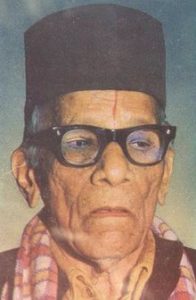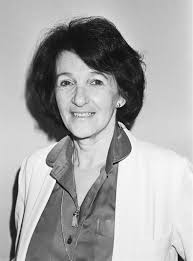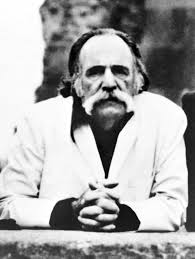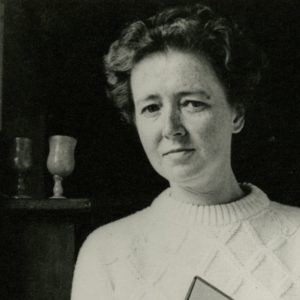We have decided to create the most comprehensive English Summary that will help students with learning and understanding.
Ranga’s Marriage Summary in English by Masti Venkatesha Iyengar
Ranga’s Marriage by Masti Venkatesha Iyengar About the Author
| Writer Name | Masti Venkatesha Iyengar |
| Born | 6 June 1891, Hosa Halli |
| Died | 6 June 1986, Bengaluru |
| Education | University of Madras |
| Awards | Jnanpith Award |
| Movies | Kakana Kote |

Ranga’s Marriage Summary in English
Thfe title ‘Ranga’s Marriage’ seems more out of place than ‘Ranganatha Vivaha’ or ‘Ranganatha Vijaya’. But it is very appropriate as it is about Ranga’s marriage—a simple young boy from Hosahalli village. Hosahalli is yet another unfamiliar name as the English writers do not know of the existence of such a place and hence do not mention it. Most people are like sheep who follow others blindly. Hence, when neither the English writers nor the geographers referred to it, the cartographer did not put it on the map. However, the narrator feels Hosahalli is an important place in Mysore State.
Even Dr Gundabhatta who has visited many places thinks the same about this village. He feels that the raw mango trees in the village have such an extreme potency of sourness that they can certainly give a terrible cough. Just as the mango is special, so is everything else around the village. There is a creeper in the water of the village pond whose flowers are a feast to behold and its leaves are large enough to serve a meal on. The narrator, Shyama, feels that he is not given to rambling but when the topic of their village comes up, he can go on endlessly. He says if one wishes to visit the place then all one has to do is write to him.
He would tell them where Hosahalli is and what things are like here.
However, he would like to,share something that happened ten years ago. Unlike the present, ten years back most people did not know English. These days, people import a lot of English words into the language. This “priceless commodity, the English language”, the narrator says, was not so widespread in the village a decade ago.
The village accountant was the first person in the village to send his son, Rangappa (called Ranga), to Bangalore to study. Hence, Ranga’s homecoming was a great occasion. People announced his coming and also went to have a look at him. Fascinated by1 the crowd that was going to Ranga’s place, the narrator, too, went with them. Seeing so many people, Ranga came out with a smile on his face. In fact, everyone was surprised to see that Ranga was the same as he had been six months ago when he had first left the village.
When the crowd realised that Ranga was still the same, they dispersed but the narrator stayed back to talk to Rangappa. Ranga noticed him, came up to him and wished him respectfully. Ranga was a person who knew when it would be to his advantage to talk to someone and correctly measured people’s worth. He bent low to touch the narrator’s feet and the narrator blessed him saying, “May you get married soon.” After talking to Ranga for a few minutes, the narrator left.
The same afternoon, when the narrator was resting, Ranga came to his house with a couple of oranges. The narrator felt that he was a kind, thoughtful fellow and it would be good to have him marry and settle down. Soon, when he broached the topic of getting married, Ranga said he would not get married in the near future. He would wait and find the right girl. He quoted the example of an officer who got married six months back, when he was about thirty and his wife, twenty-five. He liked the idea of marrying a mature girl who would understand him, unlike a childish bride. Quoting the classic tale of Shakuntala, he said that Dushyantha would not have fallen in love with Shakuntala if she were young. He said that a man should marry a girl he admires and it would be impossible to admire an immature girl.
The narrator was concerned that the boy, who would make a good husband, had decided to remain a bachelor. But the narrator made up his mind to get him married.
Rama Rao’s niece, Ratna, had come to stay with him. She was from a big town, so she knew how to play the veena and the harmonium. She also had a sweet voice. Her parents had died, and her uncle had brought her home. The narrator felt that the girl would be a suitable bride for Ranga.
Since the narrator visited Rama Rao’s place often, Ratna was quite free with him. The very next morning he went to their house and told Rama Rao’s wife that he would send some buttermilk for them and she should ask Ratna to fetch it. Ratna came wearing a grand saree. The narrator told her to sit in his room and requested her to sing a song. He also sent for Ranga. While she was singing the song, Ranga reached the door. He was so enamoured by the voice that he stopped short at the doorstep as he did not want the singing to stop. But because he was curious . to see the singer, he peeped in. When Ratna saw the stranger, she immediately stopped. Ranga looked very disappointed when the singing stopped.
He asked the narrator why he had sent for him. The narrator noticed Ranga repeatedly glance at Ratna, as she stood at a distance with her head lowered. When Ranga realised the narrator had noticed him looking at her, he was self-conscious and expressed a desire to leave. But these were merely words as he did not make a move.
Ratna ran inside, overcome by shyness. Ranga asked who the girl was. But the narrator told him that it did not matter to either of them who she was as the writer was already married and Ranga had decided not to get married. When the narrator said that Ratna had got married a year back, Ranga was visibly disappointed. The next morning the narrator went to their Shastri or priest and astrologer and told him to keep everything ready to read the stars and also tutored him, what to say.
He met Ranga that afternoon; he was still looking lost in thought. He told Ranga to accompany him to see the Shastri to find out, astrologically, whether the stars were favourable for him or not. Ranga accompanied him. As planned, the Shastri pretended to make certain calculations and said that his problem had something to do with a girl. He added that the name of the girl was something found in the ocean such as Kamala (the lotus), Pachchi, (the moss) or Ratna (the precious stone). The narrator said that the girl in Rama Rao’s house was Ratna. He asked if there was any chance of their discussions bearing fruit. The Shastri was very positive and Ranga’s face revealed surprise and some happiness. The narrator said that the girl was married but there was a possibility of another suitable girl. Ranga’s face showed his disappointment.
The narrator and Ranga left the Shastri’s place. On their way, they crossed Rama Rao’s house. They saw Ratna standing at the door. The narrator went in alone and came out a minute later and announced that he was mistaken and that Ratna was not married. Quoting the Shastri’s prediction, the writer asked if his words were true. Ranga admitted that what the Shastri had said was absolutely true. Later that evening, the narrator joked with the Shastri about his predictions but Shastri did not like it.
Much later, one day Rangappa came to invite the narrator—Shyama for dinner. He said that it was his son, Shyama’s third birthday. The narrator was familiar with the English custom of naming the child after a person one liked. He asked Ranga, now that his wife was eight months pregnant, who was helping his mother to cook. Ranga said that his sister had come with her.
When the narrator went there for dinner, Shyama rushed to him and put his arms round his legs. The narrator kissed him and slipped a ring on his tiny little finger.
Ranga’s Marriage Summary Questions and Answers
Question 1.
What does the narrator feel he could call his narration instead of ‘Ranga’s Marriage’?
Answer:
The narrator feels that the title could have been something like ‘Ranganatha Vivaha’ or ‘Ranganatha Vijaya’ because it is about one of the local lads of the village—Rangappa— called Ranga. The word ‘marriage’ is reminiscent of the western influence on this country boy, who had gone to Bangalore to study.
Question 2.
What does the writer say about the Indians aping the West?
Answer:
The writer feels that Indians blindly follow the sahibs in England. Like a flock of sheep, they follow a single . one into the pit. He quotes the example of his village, Hosahalli, not finding a mention anywhere. He says when the English writers did not mention it, Indian geographers, too, did not ever refer to it.
Question 3.
Why were the people of the village curious to see Ranga?
Answer:
The people of the village were curious to see Ranga because not many villagers were learned in English back then when the story takes place. Ranga was the first one to go to Bangalore for his education and his homecoming was celebrated and people flocked to witness the change, ten years of Bangalore, wrought in him.
Question 4.
What example does the writer give in order to prove that English words have become a part of our everyday vocabulary?
Answer:
The narrator brings out how English became a part of everyday vocabulary through this example. When an old woman brought a bundle of firewood to Rama Rao’s house, her son told her he did not have any ‘change’, and promised to pay later. The poor woman did not understand the English word ‘change’ and went away, puzzled.
Question 5.
What about Ranga impressed the narrator in the first meeting?
Answer:
Ranga noticed the narrator when the crowd had melted away. He came to the narrator and did a namaskara respectfully, saying, “I am all right, with your blessings.” His namaskara was traditional and respectful, unlike the modem practice. He bent low to touch the narrator’s feet.
Question 6.
What kind of a bride was Ranga looking for? Why?
Answer:
Ranga wanted to marry a mature girl who would be able to talk lovingly. A very young girl was unlikely to understand him and could misconstrue his words, spoken in love. He cited the example of Dushayantha who had fallen in love with the mature Shakuntala. He felt, he could only marry a girl he admired.
Question 7.
Who was Ratna? Why was the narrator keen on getting her married to Ranga?
Answer:
Ratna was Rama Rao’s niece who had come to stay with him as her parents had died. She was from a big town, knew how to play the veena and the harmonium, and had a sweet voice. The writer considered her a . suitable match for Ranga.
Question 8.
How did the narrator arrange a meeting between Ratna and Ranga?
Answer:
The writer went to Rama Rao’s house and asked his wife to send Ratna to fetch the buttermilk that the narrator promised to send. When Ratna came, he told her to sit and requested her to sing a song. He then sent for Ranga. While she was singing, Ranga reached the door.
Question 9.
What was Ranga’s reaction? How did Ratna react to him?
Answer:
Ranga was taken in by the singing. He stopped at the threshold as he did not want the singing to stop, but was curious to see the singer. Carefully, he peeped in. The light coming into the room was blocked. Ratna looked up and seeing a stranger there suddenly stopped singing.
Question 10.
Explain: “The fellow said he would leave but did not make a move.”
Answer:
When Ratna stopped singing abruptly, Ranga said that it was his coming in that had stopped the singing. He expressed a desire to leave. He merely said it for the sake of saying, and he had no intention of going away. He was enamoured of the young girl.


